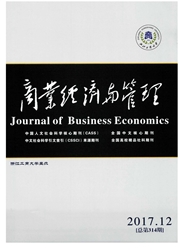

 中文摘要:
中文摘要:
心理账户理论认为消费者在购买一个产品时会在心里打开一个账户,并倾向于在心理上将利益和损失结合起来,以规避和降低先前支出带来的损失痛苦感,因为在面临一项经济交易时,消费者遵循“享乐主义加工”的原则,追求利益最大化或满意最大化。文章从心理账户的禀赋效应和支付贬值视角探讨顾客参与对顾客感知价值影响的中间心理过程,以便我们更好地理解顾客参与怎样影响消费者得失感知以及消费者在参与中为什么倾向于放大利益感知和缩小损失感知,这对于企业的营销实践具有一定的指导意义。
 英文摘要:
英文摘要:
Mental accounting theory points out that an individual will open an mental account when she purchases a product and is inclined to integrate the benefits and loss to avoid and reduce the pain of loss due to the previous costs, because when a consumer faces an economic transaction, she often follows the principle "hedonic editing", seeking to maximize the benefits or satisfaction. This paper aims to probe into the middle psychological processes of customer participation's effects on customer perceived value from the perspective of endowment effect and payment depreciation of mental accounting, so as to better understand how customer participation influences customers' perceptions of gains and losses and why customers tend to magnify gain perception and reduce loss perception. The result will offer guidelines for enterprises' marketing practice.
 同期刊论文项目
同期刊论文项目
 同项目期刊论文
同项目期刊论文
 期刊信息
期刊信息
